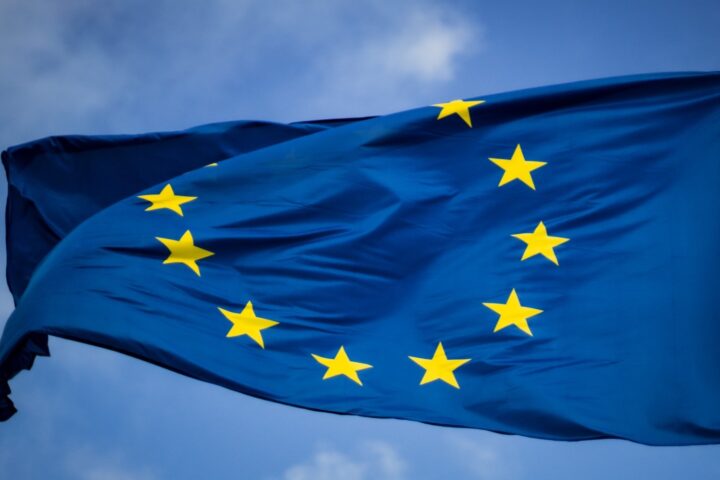This Tuesday, November 5th, will determine the fate of American politics and, for better or worse, the world’s fate. Both contenders are symptoms of the same disease: a decaying Empire drowning its surroundings in its putrid waters. We find ourselves in a time of intense campaigning, lies, and promises destined to remain unfulfilled.
Even Hollywood is caught in the controversy. I sense electoral undertones in Francis Ford Coppola’s Megalopolis, though this is merely intuition, as I’ve yet to meet anyone who’s fully grasped it. Who are we meant to see in this dystopian utopia of Megalopolis, this future city where all races and creeds have their place? I suspect the scales tip toward the Democrats.
But there’s a more explicitly political film in theaters now: Ali Abbasi’s The Apprentice. Brilliantly acted, it explores the origins of the Trump we know today. We see a young Trump, modest and idealistic, gradually corrupted by Roy Cohn, the lawyer and political puppet master.
Trump strives to outdo his father’s legacy, having started as nothing more than a glorified landlord collecting rent door-to-door. But New York’s grandeur and the nation’s destiny beckon him. In a country weakened by the Cold War, Watergate, and Vietnam, our future tycoon sets out to restore both city and nation to their former glory. There’s just one problem: the Trumps don’t want Black tenants in their buildings. When the state demands they accept social housing cases, his father would call it “absolute heresy” – and so begins their legal battle with the government.
This is where young Donald meets the sinister Roy Cohn, who introduces him to the dark underbelly of politics and crime (assuming there’s any difference). Cohn’s credentials are impressive. As McCarthyism’s strongman, his crowning achievement for “glorious America” was prosecuting the Rosenbergs to their death. But that’s not all – the master maintains a web of wiretaps and blackmail material on Washington’s gay political community.
Cohn’s doctrine is simple yet effective: “Attack, attack, attack. Admit nothing and deny everything. Whatever happens, claim victory and never accept defeat.” This seems to be the only path to excessive wealth. Trump’s dream crashes against the wall of social security: state wealth built through taxes, with the government alone capable of fair distribution. A millionaire’s wealth rarely appears from thin air – beyond Paradise, individual wealth-building typically means taking from some to benefit others. Logic dictates that the state should be the wealth distributor.
But our Prometheus of Capital aims higher. Through blackmail, he manages to build his first building while dodging taxes. Eureka! He’s found the key to prosperity: exploiting public infrastructure for private gain. Thanks to this particular methodology, the apprentice finds in Cohn both a sinister professor and the key to success.
What’s fascinating, beyond the film itself, is the messianic character of the millionaire’s psychological makeup, and how the presidential candidate imposes his own notion of destiny onto America’s actual history.
Calvinism and Predestination
The original accumulation of capital requires more than just practical means – it demands an ideology to legitimize it. In Catholicism, community was integral to feudalism’s function. While God’s authority was absolute, and nobility served as His earthly representatives, all other humans stood equal before Him, ready for pious repentance. Earthly humility was the creed; worldly existence was merely a necessary trial before true life in the hereafter. This is why mercantile pursuits were often left to Jews (like Roy Cohn), usury was considered sinful, and wealth remained the nobility’s exclusive domain.
Then came John Calvin, changing everything. Together with Martin Luther, he launched Protestantism, giving nascent capitalism its ideological foundation. While this new faith emphasized direct relationship with God, bringing a certain transactional spirit, its central innovation was the concept of predestination to wealth. Accumulating money became, after the fact, evidence of possessing a superior, divinely chosen soul.
Calvinism established a kind of spiritual genetics where wealth signified moral virtue – God’s special favor. This parallels the self-made millionaire myth: a modern Napoleon, both charismatic and roguish, rising from common mediocrity to excellence. From Bill Gates’s “humble” garage to Elon Musk’s father’s less-concealable emerald mine, millionaires construct retrospective narratives that paint them as genetically and spiritually superior beings destined for greatness.
Trump follows this pattern, casting himself as a brilliant genius who transcends mere tax evasion and blackmail – the actual sources of his wealth. This explains his connection with his base: society’s outsiders, the politically dispossessed, the undereducated middle and working classes, conspiracy theorists, libertarians, and opportunists. While Democrats board the “progressive” train, genuinely weakening America’s role as global military guardian of freedom and democracy, Trump’s supporters chase the momentary high of terminal patients with hours to live. Trump offers a quick death compared to the Democrats’ slow decline.
Spirit and Destiny of a Dying Empire
“Make America Great Again” attempts to resurrect, ahistorically, American hegemony – a dominance built on shrewd manipulation during World War I and the exploitation of neocolonial Latin America and much of the world. But times have changed. There’s no utopian communism to fight; instead, we see more adaptable, efficient forms of capitalism. The slogan calls for American introspection, a turning inward, but such self-examination would reveal an uncomfortable truth: the system can’t flourish without feeding on other nations.
America remains geographically beautiful and full of potential, yet its peculiar financial system, rooted in the arms industry, can’t sustain a policy of domestic enrichment. Trump embraces neoliberal state-dismantling without realizing that the fragile welfare state is all that maintains American society’s precarious balance.
As Georg Lukács noted, the nation splits between its essence and its interests. While Americans generally show solidarity and generosity toward immigrants and genuine concern for global issues, their government, as Bolívar foresaw, seems destined to spread misery worldwide. Their interest lies in maintaining their position as global freedom’s armed guardian.
Yet American capitalism carries within itself the seeds of its own destruction. As Hegel observed, only in death do things achieve their fullest determination and contradiction. Modern capitalism must adapt to climate change and develop control policies that invest in infrastructure, as China does, rather than relying on military intervention.
This recalls another Hegelian insight, from his younger days: “Destiny is self-consciousness but as of an enemy.” Perhaps Trump represents America’s present purgatory? While the international community demands adaptation to new realities, Trump clings to pathetic evocations of past glory. He positions himself against Calvinist and messianic destiny like a scrawny, orange Thanos insisting to the world: “I am inevitable.” Indeed, his victory would confirm the decay of the White House’s ancien regime.
Digressions aside, The Apprentice brilliantly illuminates the psychology of leadership, especially when wealth meets political ambition. Trump embodies both the dismantling of America’s welfare state and the tax-evasion fever of the 1970s. He’s a product of his era and an outdated form of capital. Moreover, he demonstrates how difficult it is to amass disproportionate wealth in a society with strong social contracts. As Confucius observed: “In a well-governed country, poverty brings shame. In a poorly governed one, wealth does.” Worse still, ill-gotten wealth becomes not just theft and harm, but something claimed as divine destiny and genetic superiority. Welcome, indeed, to interesting times!




